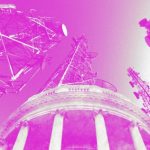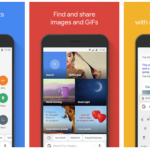The Global State of Internet Censorship [Infographic]
September 6, 2016
Internet censorship is the subject of hot debate globally. Many people are concerned about being watched by the government or being monitored by the security agencies. According to Go-globe, 64% of internet users say they are concerned about government internet censorship.

Despite the generally prevailing norm of freedom of free speech and right to information, it is widely debatable whether certain type of information should be restricted to certain people in certain times. A good example is the recent publication by WikiLeaks. The question is, should certain government information be top strict? Does the government have a right to limit or select what internet users can read, e.g. shutting down sites like WikiLeaks? Should the individual internet user choose what to view based on own principles, beliefs and morals?
There are no wrong or right answers to a controversial topic as this. However, the general consensus among internet users is that the Internet should be liberated. In some countries, bloggers have been jailed or airing their views. For instance, a blogger was recently jailed in Singapore publishing controversial posts. Make no mistakes about it—some people go to the extreme when using the internet—but the government should not be seen to muffle freedom of speech.
Basically, publishers have a right to publish truthful information. Likewise, internet users have a right to access that information. Many countries have these values codified in their local laws based on Article 19 of the Universal Declaration of Human Rights. In particular, Article 19 states “Everyone has the right to freedom of opinion and expression; this right includes freedom to hold opinions without interference and to seek, receive and impart information and ideas through any media and regardless of frontiers.”
Having said that, no government has a right to censor information. The sad news is that many governments are going against the spirit of freedom of expression to enact stringent laws in the name of fighting terrorism, extremism, and child pornography and so on. While there is no denying the fact that things like terrorism, cybercrime, child pornography and drug traffic are global concerns, many governments are hiding behind the fact that they are fighting these vices while in the real sense they want to control how people give and receive information for political reasons.
If there are criminal elements among the internet users, the government should deal with those elements individually rather than purporting to censor information. Internet has brought us many blessings. We can now shop from the comfort of our homes, connect with friends and family through the globe and do many other things we could only dream about not many years ago. So it is only sensible that the internet be liberated, and if that is done, the future will be brighter.
Digital & Social Articles on Business 2 Community
(29)

![The Global State of Internet Censorship [Infographic]](https://www.devicedaily.com/wp-content/uploads/2016/09/The-Global-State-of-Internet-Censorship-Infographic-Header.png)











